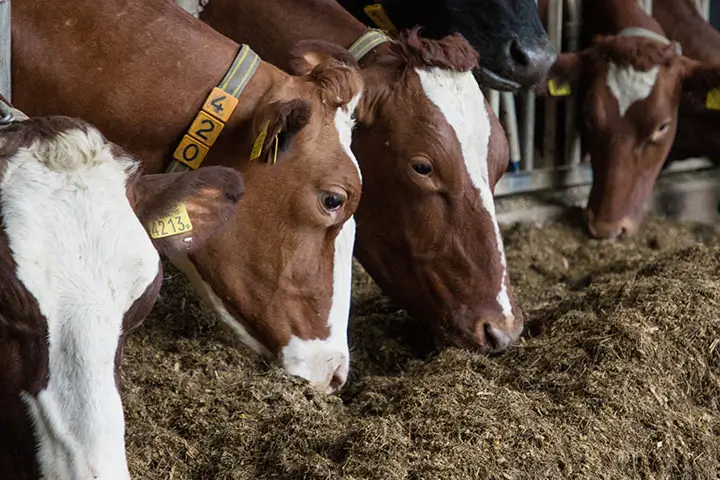
When we think of oats, our minds often drift to a hearty bowl of oatmeal or a delicious granola bar. But oats hold a hidden secret—they possess incredible potential as animal feed for livestock. In this article, we will delve into the numerous benefits of using oats in livestock diets and why farmers should seriously consider incorporating this cost-effective and nutrient-rich grain into their feeding programs.
- Nutritional Powerhouse: Oats are a nutritional powerhouse for livestock. Bursting with essential nutrients, including carbohydrates, proteins, vitamins, and minerals, oats provide a well-rounded and balanced diet for animals. This nutrient composition contributes to healthy growth, improved immune function, and enhanced overall well-being in livestock. Let’s consider an example:
Picture a group of dairy cows enjoying a diet supplemented with oats. These cows experience increased milk production and higher milk quality due to the optimal nutrient profile offered by oats. The rich source of energy in oats allows for sustained milk production without compromising the cows’ health or body condition.
- Cost-Effective Solution: One of the most compelling reasons for farmers to embrace oats as animal feed is their affordability. Oats are typically more budget-friendly compared to other grains commonly used in livestock diets. The lower market price of oats, coupled with their wide availability, makes them an attractive option for farmers looking to optimize their feed costs without compromising on quality. Consider this example:
Imagine a poultry farmer who decides to introduce oats into the diet of their broiler chickens. By incorporating oats as a cost-effective alternative to more expensive grains, the farmer can significantly reduce their feed expenses without compromising the nutritional needs of the birds. This cost-saving measure directly contributes to improved profitability and sustainable farming practices.
- Enhanced Digestibility: The digestibility of oats sets them apart as an exceptional animal feed option. With their unique composition, oats are easily broken down and absorbed by the digestive systems of livestock. This high digestibility translates to better feed conversion rates and improved nutrient utilization. Here’s an example to illustrate the point:
Visualize a herd of beef cattle grazing on oat-rich pasture. The easily digestible nature of oats allows these animals to efficiently convert the nutrients into muscle mass, leading to improved weight gain and optimal body condition scores. The enhanced digestibility also reduces the risk of digestive disorders, ensuring the overall health and well-being of the cattle.
- Environmental Sustainability: In an era where sustainable farming practices are gaining momentum, oats shine as an environmentally friendly feed option. Oats require fewer chemical inputs and water compared to certain other grains, making them a more sustainable choice for farmers. Let’s explore an example:
Consider a pig farmer who adopts oat-based feed for their swine. By choosing oats, the farmer contributes to water conservation efforts and reduces the need for synthetic fertilizers and pesticides. The environmentally friendly approach not only benefits the farm but also aligns with consumer demands for ethically and sustainably produced food.
Oats possess extraordinary potential as animal feed for livestock, offering a host of benefits ranging from their nutritional value and cost-effectiveness to enhanced digestibility and environmental sustainability. By incorporating oats into their feeding programs, farmers can optimize animal health, improve profitability, and make a positive impact on the environment. So, let the power of oats revolutionize your livestock feeding practices, and witness the transformative effects it can have on your farming operations.
Stay updated with the latest farming tips and agriculture industry news from Africa by subscribing to our newsletter. Don’t miss out on valuable insights and updates. Follow us on Twitter, LinkedIn, and Facebook to join our farming community and stay connected with us.



















